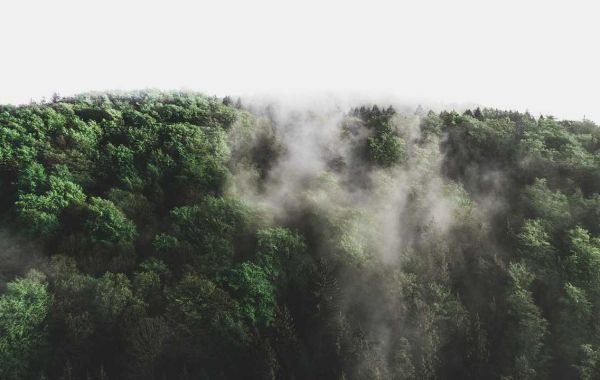In an era of escalating environmental challenges, the work of environmental biologists has never been more vital. These professionals play a crucial role in understanding, protecting, and restoring the delicate balance of ecosystems around the world. But what do environmental biologists do exactly? They are responsible for conducting research, analyzing data, and developing strategies to preserve natural habitats and biodiversity, ultimately ensuring that our planet's ecosystems remain healthy and sustainable. In this guest post, we will delve into the specific tasks of environmental biologists, explore the impact of their work, and highlight the importance of their role in addressing today’s most pressing environmental issues.
Understanding the Scope of Environmental Biology
Environmental biology is a multidisciplinary field that encompasses the study of ecosystems, biodiversity, conservation, and the interaction between living organisms and their environments. It draws upon principles from biology, ecology, chemistry, and even social sciences to better understand how natural systems function and how human activities impact them. Environmental biologists work to unravel the complexities of ecosystems, studying everything from soil health and water quality to the behavior of wildlife and plant species.
The overarching goal of an environmental biologist is to promote sustainability and mitigate human-induced environmental damage. This might involve assessing the health of wetlands, forests, oceans, or urban environments, as well as designing conservation strategies to protect endangered species or restore damaged ecosystems.
What Do Environmental Biologists Do?
Environmental biologists wear many hats, and their responsibilities can vary significantly depending on their area of expertise. Generally, their tasks fall into several broad categories:
- Field Research and Data Collection:
A significant portion of an environmental biologist's work involves conducting field research. This can mean anything from collecting soil, water, or air samples to tracking the population dynamics of specific animal or plant species. Environmental biologists often spend considerable time outdoors, gathering data on the health of ecosystems and identifying any potential threats, such as pollution or invasive species. - Analyzing Environmental Data:
After collecting data in the field, environmental biologists analyze their findings to assess the health of an ecosystem. This could involve studying the biodiversity of a forest, analyzing water quality in a river, or measuring the impact of climate change on a coastal region. By interpreting this data, they can make informed decisions about how best to protect or restore an environment. Data analysis also helps them identify trends or patterns that could indicate future environmental threats. - Developing Conservation Strategies:
One of the most important aspects of an environmental biologist's job is creating plans to protect natural environments and the organisms that live in them. They work closely with conservationists, governments, and organizations to develop strategies for preserving biodiversity, protecting endangered species, and restoring degraded ecosystems. This might involve implementing wildlife protection laws, designing habitat corridors to connect fragmented landscapes, or restoring damaged wetlands to improve water quality. - Collaborating with Policymakers and Organizations:
Environmental biologists frequently work alongside government agencies, NGOs, and private companies to advise on environmental regulations and sustainable practices. For example, they might help city planners design green spaces or advise corporations on how to reduce their ecological footprint. Environmental biologists are instrumental in shaping environmental policies by providing scientific evidence that can inform decisions on issues such as land use, resource management, and conservation efforts. - Educating the Public and Raising Awareness:
Public education and awareness are essential to promoting environmental conservation, and environmental biologists often take an active role in these efforts. They may give public talks, write articles, or work with schools to educate students about the importance of protecting our ecosystems. By helping people understand the impact of their actions on the environment, they can inspire positive changes in behavior that benefit both nature and society.
The Importance of Environmental Biologists in Tackling Global Challenges
Environmental biologists are at the forefront of addressing some of the most critical global challenges facing our planet today. From climate change and deforestation to pollution and habitat loss, their work is vital in ensuring that ecosystems can withstand the pressures of human activity. Here are a few key areas where environmental biologists are making a significant impact:
- Biodiversity Conservation:
As human populations grow and natural habitats shrink, biodiversity is under threat. Environmental biologists work to identify species at risk and develop strategies to protect them. They conduct species assessments, study the effects of habitat fragmentation, and implement conservation plans to safeguard ecosystems and the organisms that depend on them. - Climate Change Mitigation:
Environmental biologists play a critical role in understanding how climate change is affecting ecosystems and species around the world. They monitor the impacts of rising temperatures, changing precipitation patterns, and sea-level rise on habitats and wildlife. Their research helps to predict future changes and develop strategies for mitigating the negative effects of climate change. - Pollution Control and Ecosystem Restoration:
Pollution poses a major threat to both aquatic and terrestrial ecosystems. Environmental biologists study the effects of pollutants like chemicals, plastics, and heavy metals on ecosystems, developing methods for reducing pollution and restoring ecosystems that have been damaged. Whether it's cleaning up oil spills, reforesting degraded land, or improving water quality in rivers and lakes, their work is essential in healing damaged environments. - Sustainable Resource Management:
Environmental biologists also contribute to the sustainable management of natural resources, such as forests, fisheries, and water systems. They study the effects of resource extraction on ecosystems and recommend ways to minimize environmental damage while ensuring that resources can be used responsibly. This is crucial for balancing human needs with the health of the planet.
The Educational Path and Career Outlook
Becoming an environmental biologist typically requires a degree in biology, environmental science, or a related field. Many environmental biologists also pursue advanced degrees to specialize in areas like ecology, marine biology, or environmental chemistry. Fieldwork experience, internships, and hands-on research are also valuable components of an aspiring environmental biologist’s education.
The career outlook for environmental biologists is positive, particularly as the world continues to grapple with environmental challenges. Governments, corporations, and nonprofit organizations increasingly recognize the need for professionals who can develop sustainable solutions to protect our planet.
Conclusion
Environmental biologists are unsung heroes in the fight to preserve our ecosystems and protect the environment for future generations. Their work, which includes research, data analysis, conservation planning, and public education, is critical in addressing the environmental issues that threaten the health of our planet. By understanding what environmental biologists do, we gain a greater appreciation for their role in maintaining the balance of our ecosystems and ensuring a sustainable future for all living beings.







